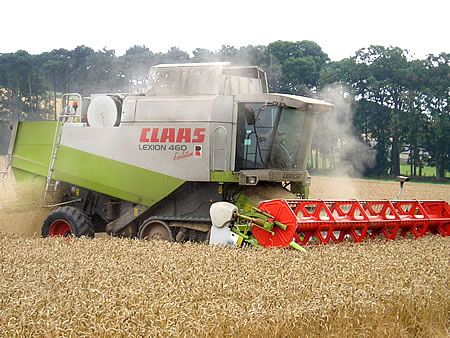
Productivity is key to competitiveness, argues new SAC report
New research by SAC’s Rural Policy Centre has revealed that, although Scotland’s agricultural productivity still compares well against other UK nations, productivity is not rising as fast as it was. The report’s authors describe this decline as ‘worrying’ because of its potential impact on the industry’s position in export markets and the risk of losses of market share to imports.
The report suggests that to tackle the decline, more needs to be done to remove the barriers to farmers’ adoption of cost-saving, efficiency-boosting new technologies.
The research also found that technical efficiency is either falling or has remained stable in several key farming sectors, such as cereals and dairying. For example, since 2004 both the rate of labour productivity (output per worker) and land (output per ha), have declined. The report argues that structural changes that occurred following the decoupling of the CAP may have led to some of this decline.
Dr Andrew Barnes, who co-authored the report with colleagues in SAC’s Land Economy and Environment Research Group, said: “Productivity is a key indicator of international competitiveness and, in a world of increasing pressure on resources such as water and nutrients, it is fundamental to providing a sustainable agricultural industry.
“Barriers that might be preventing farmers’ uptake of new technologies could be cost-related or simply based on farmer attitudes. More investigation is needed into how the various knowledge exchange programmes can help to change attitudes.
“The levy boards also have a particular part to play because they run applied research programmes with an emphasis on translating research findings into practice. In addition, the development of small scale projects funded by farmers’ organisations, such as machinery rings, would allow more ownership of research findings and possibly encourage uptake.”
Dr Barnes also highlights that the 2013 reform of the Common Agricultural Policy may present a number of opportunities for targeting and rewarding innovative behaviour, either through support for adoption of high cost capital projects, or further encouraging uptake of new knowledge and techniques from advisory schemes.
Published on 25 August 2011 in Sustainability and Communities , Food, health and wellbeing
Topics
- Climate, water and energy
- Ecosystems and biodiversity
- Food, health and wellbeing
- Sustainability and Communities







